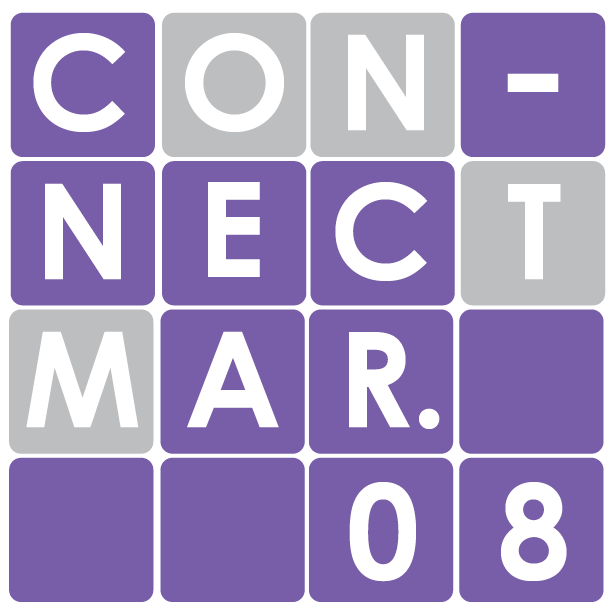In the middle of August this year, Hurricane Irene came into contact with America’s east coast.
Although the death toll was relatively low in comparison to other large natural disasters, the damages have been estimated to be as high as $7 billion for our country.
This weather phenomenon has been dominating news coverage, with constant updates and a regular spot on the 24/7 ticker constantly bombarding the general public. However, in regular conversation, the event has been largely unaddressed and ignored .
In fact, when discussing the subject with peers, almost no one was able to say they were frequently checking in on the status and effects of the hurricane.
On the surface, there is nothing alarming about general apathy for one relatively small occurrence, but with further examination, there is a more subtle and unnoticeable trend.
Over the past several years, news mega-stories have bombarded us one after another; specifically natural disasters have seemed more frequent. This isn’t to say the apocalypse is looming, but the fact that there is now immediate coverage of even the slightest happening gives off the feeling that disasters are happening left and right.
In fact, according to Twitter, more than 40,000 earthquake-related Tweets were reported within minutes of the east coast earthquake last month. The International Business Times even reported that some people have even claimed that they received tweets about the earthquake before it hit them.
Although the earthquake happened less than 600 miles away within US borders, we at the HiLite have yet to hear a single mention of what happened in conversation.
This is only natural, though. A recent article by Patrick Cockburn in The Independent discusses how media coverage of natural disasters in our modern news cycle is wholly formulaic, following the same tone and outline each time.
As a result, viewers begin to blend the past disasters, losing the ability to differentiate them from one another and often completely overlooking the effects. In essence, the coverage goes in one ear and out the other.
At the time of the flooding in Mississippi and tornado in Joplin, Missouri, it was impossible not to hear about the tragedies. After the cameras stop rolling however, as people we move on to whichever story is next.
So the problem is two-fold: disasters are covered so much and so similarly, and the fast-moving news cycle pushes us into proceeding to the next major headline. There is always a major story to focus on, and when the next one arrives the last one is forgotten.
This is how the modern news cycle is defined. Looking back at 2011 so far, we can condense the news cycle by each major story. From the perspective of someone who doesn’t regularly follow the news, it would appear to have been the revolution in Egypt, the civil war in Libya, the Japanese tsunami, earthquake and nuclear meltdown, Osama bin Laden’s death, the disasters in Mississippi and Missouri, the debt crisis and now Irene.
Unless a viewer is paying close attention to global affairs, news is only ingested when it is overwhelming, and the after-effects and details are often ignored as a result. This needs to change, and this change isn’t going to occur at the hands of the news cycle.
Only we can allow ourselves to truly become connected to the stories, and the only way to do this is to become part of them. The most effective way to understand the implications and remember the effects is to get involved by helping out in any way possible.
For instance, the two of us were able to aid those affected by the Joplin tornado by personally putting together care packages. In doing so, we will always be able to relate to the disaster through personal experience.
With so many disasters and so many stories, the easiest action to take is to simply move on without becoming attached. But if one of these disasters were to happen to us, we would expect nothing less than our fellow Americans to come to our side in our time of need. And if we expect nothing less from others, we should expect nothing less from ourselves.
However easy it may be to continue on with our lives, the effort necessary to make a difference will have an impact on those on the receiving end and also on ourselves.
By allowing ourselves to empathize, we can always keep in mind the people across the world who are affected by the stories rather than just the stories themselves.
Because headlines are not just made up of words, but also the people who bring them to life.



















![Joseph Broman, Mu Alpha Theta sponsor, grades tests for his honors precalculus/trigonometry class. Broman said, “I’m retiring from the Math Club next year and I’m just going to do Mu Alpha Theta so I can focus on that one and we can do more [speaker series] first semester.”](https://hilite.org/wp-content/uploads/2024/03/IMG_9502-1200x900.jpg)










![British royalty are American celebrities [opinion]](https://hilite.org/wp-content/uploads/2024/03/Screenshot-2024-03-24-1.44.57-PM.png)


![The new “Kung Fu Panda 4” movie: a journey of growth, self-realization and adventure [opinion]](https://hilite.org/wp-content/uploads/2024/03/po-1200x588.png)


















![Review: “The Bear” sets an unbelievably high bar for future comedy shows [MUSE]](https://hilite.org/wp-content/uploads/2024/03/unnamed.png)
![Review: “Mysterious Lotus Casebook” is an amazing historical Chinese drama [MUSE]](https://hilite.org/wp-content/uploads/2024/03/0.webp)
![Thea Bendaly on her Instagram-run crochet shop [Biz Buzz]](https://hilite.org/wp-content/uploads/2024/03/IMG_0165-1200x838.jpg)
![Review: Sally Rooney’s “Normal People,” is the best book to read when you are in a time of change [MUSE]](https://hilite.org/wp-content/uploads/2024/03/20047217-low_res-normal-people.webp)
![Review: “One Day” broke me for the second time, but this time it hurt worse [MUSE]](https://hilite.org/wp-content/uploads/2024/03/unnamed-8.png)
![Review in Print: Maripaz Villar brings a delightfully unique style to the world of WEBTOON [MUSE]](https://hilite.org/wp-content/uploads/2023/12/maripazcover-1200x960.jpg)
![Review: “The Sword of Kaigen” is a masterpiece [MUSE]](https://hilite.org/wp-content/uploads/2023/11/Screenshot-2023-11-26-201051.png)
![Review: Gateron Oil Kings, great linear switches, okay price [MUSE]](https://hilite.org/wp-content/uploads/2023/11/Screenshot-2023-11-26-200553.png)
![Review: “A Haunting in Venice” is a significant improvement from other Agatha Christie adaptations [MUSE]](https://hilite.org/wp-content/uploads/2023/11/e7ee2938a6d422669771bce6d8088521.jpg)
![Review: A Thanksgiving story from elementary school, still just as interesting [MUSE]](https://hilite.org/wp-content/uploads/2023/11/Screenshot-2023-11-26-195514-987x1200.png)
![Review: When I Fly Towards You, cute, uplifting youth drama [MUSE]](https://hilite.org/wp-content/uploads/2023/09/When-I-Fly-Towards-You-Chinese-drama.png)
![Postcards from Muse: Hawaii Travel Diary [MUSE]](https://hilite.org/wp-content/uploads/2023/09/My-project-1-1200x1200.jpg)
![Review: Ladybug & Cat Noir: The Movie, departure from original show [MUSE]](https://hilite.org/wp-content/uploads/2023/09/Ladybug__Cat_Noir_-_The_Movie_poster.jpg)
![Review in Print: Hidden Love is the cute, uplifting drama everyone needs [MUSE]](https://hilite.org/wp-content/uploads/2023/09/hiddenlovecover-e1693597208225-1030x1200.png)
![Review in Print: Heartstopper is the heartwarming queer romance we all need [MUSE]](https://hilite.org/wp-content/uploads/2023/08/museheartstoppercover-1200x654.png)













![Review: Ladybug & Cat Noir: The Movie, departure from original show [MUSE]](https://hilite.org/wp-content/uploads/2023/09/Ladybug__Cat_Noir_-_The_Movie_poster-221x300.jpg)

![Review: Next in Fashion season two survives changes, becomes a valuable pop culture artifact [MUSE]](https://hilite.org/wp-content/uploads/2023/03/Screen-Shot-2023-03-09-at-11.05.05-AM-300x214.png)
![Review: Is The Stormlight Archive worth it? [MUSE]](https://hilite.org/wp-content/uploads/2023/10/unnamed-1-184x300.png)



